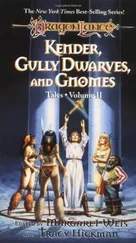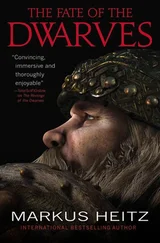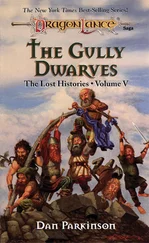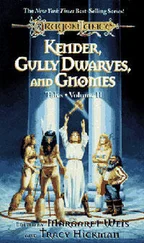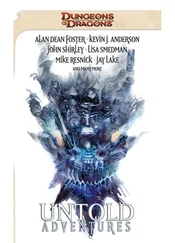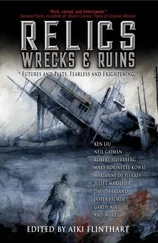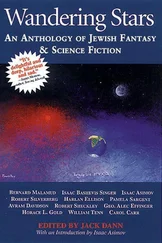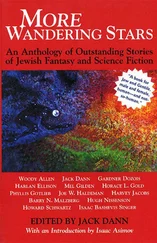Anthology - Kender, gully Dwarves, and Gnomes
Здесь есть возможность читать онлайн «Anthology - Kender, gully Dwarves, and Gnomes» весь текст электронной книги совершенно бесплатно (целиком полную версию без сокращений). В некоторых случаях можно слушать аудио, скачать через торрент в формате fb2 и присутствует краткое содержание. Жанр: Фэнтези, на английском языке. Описание произведения, (предисловие) а так же отзывы посетителей доступны на портале библиотеки ЛибКат.
- Название:Kender, gully Dwarves, and Gnomes
- Автор:
- Жанр:
- Год:неизвестен
- ISBN:нет данных
- Рейтинг книги:3 / 5. Голосов: 1
-
Избранное:Добавить в избранное
- Отзывы:
-
Ваша оценка:
- 60
- 1
- 2
- 3
- 4
- 5
Kender, gully Dwarves, and Gnomes: краткое содержание, описание и аннотация
Предлагаем к чтению аннотацию, описание, краткое содержание или предисловие (зависит от того, что написал сам автор книги «Kender, gully Dwarves, and Gnomes»). Если вы не нашли необходимую информацию о книге — напишите в комментариях, мы постараемся отыскать её.
Kender, gully Dwarves, and Gnomes — читать онлайн бесплатно полную книгу (весь текст) целиком
Ниже представлен текст книги, разбитый по страницам. Система сохранения места последней прочитанной страницы, позволяет с удобством читать онлайн бесплатно книгу «Kender, gully Dwarves, and Gnomes», без необходимости каждый раз заново искать на чём Вы остановились. Поставьте закладку, и сможете в любой момент перейти на страницу, на которой закончили чтение.
Интервал:
Закладка:
Nor can we say who the story will gather. 95
UNDER THE AUTUMN TWILIGHT:
From the north came danger, as we knew it would: 100
In encampments of winter, the dragon's sleep
Has settled the land, but out of the forest,
Out of the plains they come, from the mothering earth
Defining the sky before them.
UNDER THE AUTUMN TWILIGHT:
IV. Commentary
Armavir, "Song of Huma"
Line 1: FROM THE NORTH CAME DANGER, AS WE KNEW IT WOULD. Well, SOME of us knew, but Armavir is being very generous in using «we» in the first line of the poem. It was he, of course, who first made the inspired deduction that the draconians were indeed a horrid perversion of magic, not a race that "just naturally grew" up in the northern lands, as some of the other Companions maintained at first (and Caramon Majere, not noted for his insight, believed until the end of the war). They marked down the poet's observation as "another Gnome prejudice," in the pettiness so widespread among all of their races, not seeing that the prejudice was their own.
Line 4:… FROM THE MOTHERING EARTH. Though even the alert reader may take this to be a reference only to Flint, the poet meant for the line to refer not only to Flint, but to himself. This was one of his favorite phrases, as one can tell by his repeating it intact in the final stanza. At the time, "mother earth" was a fresh and original phrase, but the humans picked it up and, as the saying goes, ran it into the ground.
Line 5: THE SKY UNRECKONED BEFORE THEM. In this line a suggestion of not only the obvious fear of the future shared by all of the Companions, but also a wistful look back to the failed "Star Wires" experiment (see Part II of this essay) in which Armavir received illumination. Line 6: NINE THEY WERE, UNDER THE THREE MOONS. Obviously, the original of this line reads "Ten they were, under the three moons," as it does throughout Armavir's original manuscript. See also the note to line 81.
Lines 10–14: ONE FROM A GARDEN… THE SPIRIT GATHERED. This part of the stanza obviously refers to Flint Fireforge, whom Armavir rather liked. Flint always maintained that the Companions would never have gotten together had it not been for the gnome's charisma and influence. As in so many other cases, the story you read has tangled in translation, and alas, Flint is no longer around to set it straight.
Line 12: WHERE THE HEART AND THE MIND RIDE UNQUESTIONED. A reference to the poet's "Lost Years" (see Part II of the essay) in which, dazed and electrocuted, he wandered the lands of Krynn. Armavir always suspected he was under Flint's care at the time.
Line 14: IN HIS FATHERING ARMS, THE SPIRIT GATHERED. A punning reference to the dwarf's fondness for distilled spirits, a vice Caramon Majere (himself no teetotaller, as I recall) had the audacity to claim was Armavir's own. Flint in fact gathered the dwarf-spirits on the pretext that he was keeping them out of Armavir's hands, but indeed these particular spirits dwindled unexplainably in his care (however, see note to lines 19–23 below).
Lines 19–23: ONE FROM A HAVEN… AND GREEN AGAIN. He HATED Tasslehoff. That fake innocence andfalse cheeriness masked the fact that the kender was a cold hearted squirrel of a creature, Tanis's pet vole. WE know who really found the Dragon Orb at the High Clerist's Tower, don't we, you plundering, pony-tailed little pipsqueak? We also know who it was that was nipping Flint's firewater and refusing to scold Armavir after the blame was passed elsewhere, not, as the others thought, out of a natural soft-heartedness, but because it suited him to APPEAR naturally soft-hearted, and in doing so, to shift the blame more easily elsewhere, because the smarter ones — Raistlin and old Flint — would have thought a self-righteous lecture was strangely out of character.
In composing the "Song of the Ten Heroes" Armavir had to put this third stanza in to stave off the kender's hard feelings (yes, some poetry is most fanciful, most feigning), and perhaps it was even a sincere gesture on the poet's part to say that his own hard feelings he was willing to put aside? But what does Mister Minimus, everybody's favorite, do? Tries to steal this manuscript, readers — the very manuscript you're reading at this moment. Wanted to publish it under HIS name, change it a little to prove HE wrote the Dragonlance songs, when even the "Kender Trailsong"23 and "Kender Mourning Song"24 were not his, and his "Song of Courage"25 an insipid little number he twisted by
23. CHRONICLES, I, p. 75. Caramon deftly changed the name of this (though why he would choose «Trailsong» is beyond this humble writer). It was written some years after the war, in a moment of abject bitterness, for Caramon himself (Tika being the "one true love" of the poem). Reorx knows what Tasslehoff sang before the centaurs, but it wasn't this.
24. CHRONICLES, III, p. 261. He'd even claim this as his own, that bald faced little graverobber of metaphor!
25. LEGENDS, II, p. 86. The last two stanzas are Armavir's, the first two Tasslehoff's perversion. Side by side (or rather, one on top of the other) they produce an astonishing contrast in quality that is evident to this day. changing some words from the original text! I stole back the manuscript (poetic justice!), all but 700 or so pages, none of which had anything to do with who wrote the songs but were simply a learned treatise on kleptomania, from which you should read and benefit, rodent!
Lines 28–32: THE NEXT FROM… SHE CAME. Goldmoon. The phrase "bearing a staff" refers not only to the Blue Crystal Staff that the original CHRONICLES fussed over so, but also to the Que-Shu princess's rather numerous personal staff of handmaidens, pages, and other attendants — a rather large group of Plainsmen who appear nowhere in the original CHRONICLES. Often the highly revered Priestess of Mishakal implored Tanis to give up the quest, complaining of muscle cramps, of Flint's and Caramon's (and Armavir's) tendency not to bathe (but given Armavir's tragic past, surely he feared water as that most powerful of electrical conductors, and would have stood, as I stand now, afloat on the writing table, dry and safe for the time being as the waters in this cell keep rising…), complaining loudly, upon first handling the disks of Mishakal, that she had broken a fingernail.
Plains tribes were scattered as much through vagrancy and underemployment as through anything the draconians were doing at the time, and the fact is that they were confined to a life of wandering and forage merely because so many of the more promising young people among them were hastened off to dance attendance on the various Chieftains and Chieftain's daughters. Those who were left were essentially scavengers, as evidenced below.
I have an additional paragraph regarding Gold-moon, which shall not be published until after River-wind's death (see note to lines 46–50).
Lines 37–41: THE NEXT FROM… SPACE INTO LIGHT. Riverwind. "Hierarchies of space" indeed, for the poor man was completely boggled by his semi-successful quest for the Blue Crystal Staff.26 He was indeed "in the shadow of the moon," and Armavir constructs a marvelous pun in line 37. In Goldmoon's shadow is the obvious reading — he was slavishly devoted to her — but in addition, Armavir means to suggest that the Plainsman walked beneath the shadow of Lunitari, the moon from which the common speech derives the term "lunatic."
Читать дальшеИнтервал:
Закладка:
Похожие книги на «Kender, gully Dwarves, and Gnomes»
Представляем Вашему вниманию похожие книги на «Kender, gully Dwarves, and Gnomes» списком для выбора. Мы отобрали схожую по названию и смыслу литературу в надежде предоставить читателям больше вариантов отыскать новые, интересные, ещё непрочитанные произведения.
Обсуждение, отзывы о книге «Kender, gully Dwarves, and Gnomes» и просто собственные мнения читателей. Оставьте ваши комментарии, напишите, что Вы думаете о произведении, его смысле или главных героях. Укажите что конкретно понравилось, а что нет, и почему Вы так считаете.

